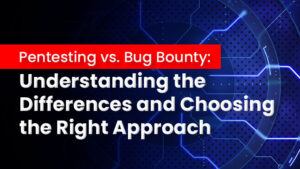Introduction
The pace of technological advancement is exponential. Although services and technical ecosystems are becoming more complicated, it is now much easier to install new environments for testing or production than it was 10 or more years ago. The use of containers is one of the causes of this occurrence.
Virtualization, called containerization, involves packaging a software program or service with all the necessary parts to execute in any computing environment. By enhancing programs’ portability, efficiency, and scalability, containers go well in hand with current cloud-native development techniques. Software teams can use container orchestration to make managing their container infrastructure easier as application designs get more complicated and the number of containers required to maintain stability across a distributed system increases.
Automating the administrative duties necessary to execute services for containerized workloads is known as container orchestration. By automatically managing specific components, they relieve the effort of manually maintaining configurations and modifications within container environments, declaratively, using templates created using YAML or JSON files, or, importantly, by passing commands through a server’s console.
Tools for orchestrating containers control and automate every step of a container’s lifecycle, including provisioning, deployment, and scaling. This enables businesses to reap the rewards of large-scale containerization without adding to their maintenance costs. Before settling on a new technology, teams should consider the difficulties of implementing container orchestration tooling. This article covers detailed knowledge of Container Orchestration.
Benefits of Container Orchestration
The benefits of container orchestration include the following:
- Advanced security
- Cost efficiency
- Simplified deployments
- Improved application development
- Efficient resource management
- Advanced Security
As apps can operate independently in containers, lowering the traditional security concerns associated with running applications and their processes is possible. Additionally, container orchestration technologies lower the chance of data breaches and other security flaws by allowing users to share just particular resources.
Compared to virtual machines, containers are resource-efficient and lightweight. No of the environment, it is simpler to accommodate several containers on a single host, which results in significant cost savings when deployed at scale using a container orchestration tool. Additionally, the container orchestration system saves money by requiring less time and labor to administer than manual deployments.
Tools for container orchestration speed up the development and release of the software. As everything about the application is contained within the container, application deployments are easier to control. Some container orchestration technologies provide deployment controllers, such as rollout and rollback pod management, that further ease the deployment process.
-
Efficient Resource Management
Since containers do not contain Operating System (OS) images, managing resources is made simpler. Containers are hence more lightweight and practical than conventional applications.
Container Orchestration Tools
There are many tools for orchestrating containers. The most well-liked ones are discussed in this section:
The most well-known and widely used open-source container orchestration platform is Kubernetes, sometimes called K8s. To assist teams in reaping the rewards of Kubernetes without adding complexity, it focuses on managing a container’s complete life cycle and offers various managed services. Developers favor it because of its adaptability, vendor-neutral features, consistent version releases, and the open-source community that has grown up around it.
Manage complicated applications made up of numerous separate services that must be hosted at scale with the aid of Kubernetes. This is made simple by the Kubernetes API, which enables the automation of several provisioning and management-related operations.
The open-source container orchestration tool and native clustering engine of Docker are called Docker Swarm. It efficiently manages various containers deployed on numerous servers by consolidating a pool of Docker instances and hosts into a single virtual host.
Decentralized access provided by Docker Swarm makes it simple for distant teams to work on and successfully manage the environment.
Another free and open-source cluster management system is Apache Mesos. It bridges the OS and the application layer, making deploying and administrating programs in densely populated environments more straightforward and effective.
As the first open-source cluster management service, Mesos uses dynamic resource sharing and isolating a program from other active processes to manage a workload in a distributed environment. Mesos makes all of the machines in the cluster’s resources available to applications, and it frequently refreshes to incorporate the resources that completed apps have freed up. This enables apps to choose the most effective task on each system.
Container Orchestration Challenges
Setting up container orchestration can be daunting for organizations with little container experience. Educating yourself about the tools and what they manage will help you address challenges such as:
Multi-Cloud Container Orchestration
The use of two or more cloud services from two or more different providers is what is generally meant when the word “multi-cloud” is used in IT contexts. The use of two or more cloud infrastructure platforms, including public and private clouds, for executing applications is typically referred to as multi-cloud in the context of containers and orchestration. Therefore, multi-cloud container orchestration is the process of using an orchestration technology to manage containers across various cloud infrastructure environments as opposed to just one.
Multi-cloud strategies’ advantages include infrastructure cost optimization, flexibility, portability (including reducing vendor lock-in), and scalability (such as dynamically scaling out a cloud from an on-premises environment when necessary). Software teams pursue multi-cloud strategies for a variety of reasons. Due to containers’ portable, “run anywhere” nature, multi-cloud environments and they go hand in hand.
Virtualization vs. Containerization
Running multiple operating systems in a layer separate from the underlying hardware is known as virtualization. It uses the capabilities of a single physical server to generate a virtual computer environment. Due to containerization, users can deploy numerous programs on the same host operating system. An application and its dependencies are contained in a container by containerization. It leverages the host OS rather than installing an OS for each virtual machine.
Applications that require complete OS functionality or those that need to be tested on many operating systems are the ideal candidates for virtualization. Less expensive hardware is the result. Due to their smaller size and RAM requirements, containers can accommodate more apps on a single server.
Conclusion
As technology advances and expands, it is crucial to be aware of current developments. Operations teams can now more easily oversee their infrastructure due to the orchestration of these environments for rolling out upgrades, rollbacks, scalability, and security. You can be sure these modern techniques and instruments will be around for a while.
How apps and services are deployed or managed will advance because container orchestration has a promising future. New features would likely create new issues, but they would also solve existing ones by managing more extensive and complicated systems over time.







